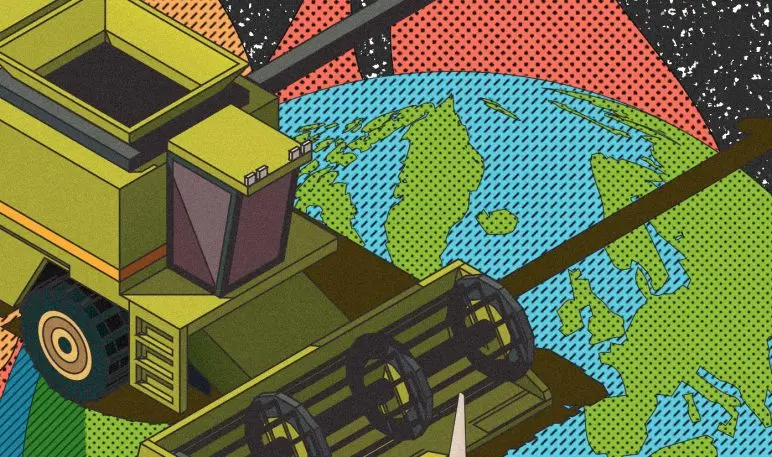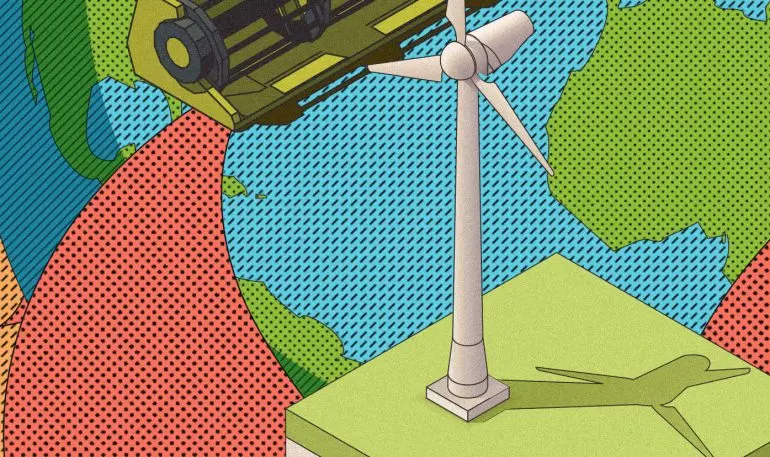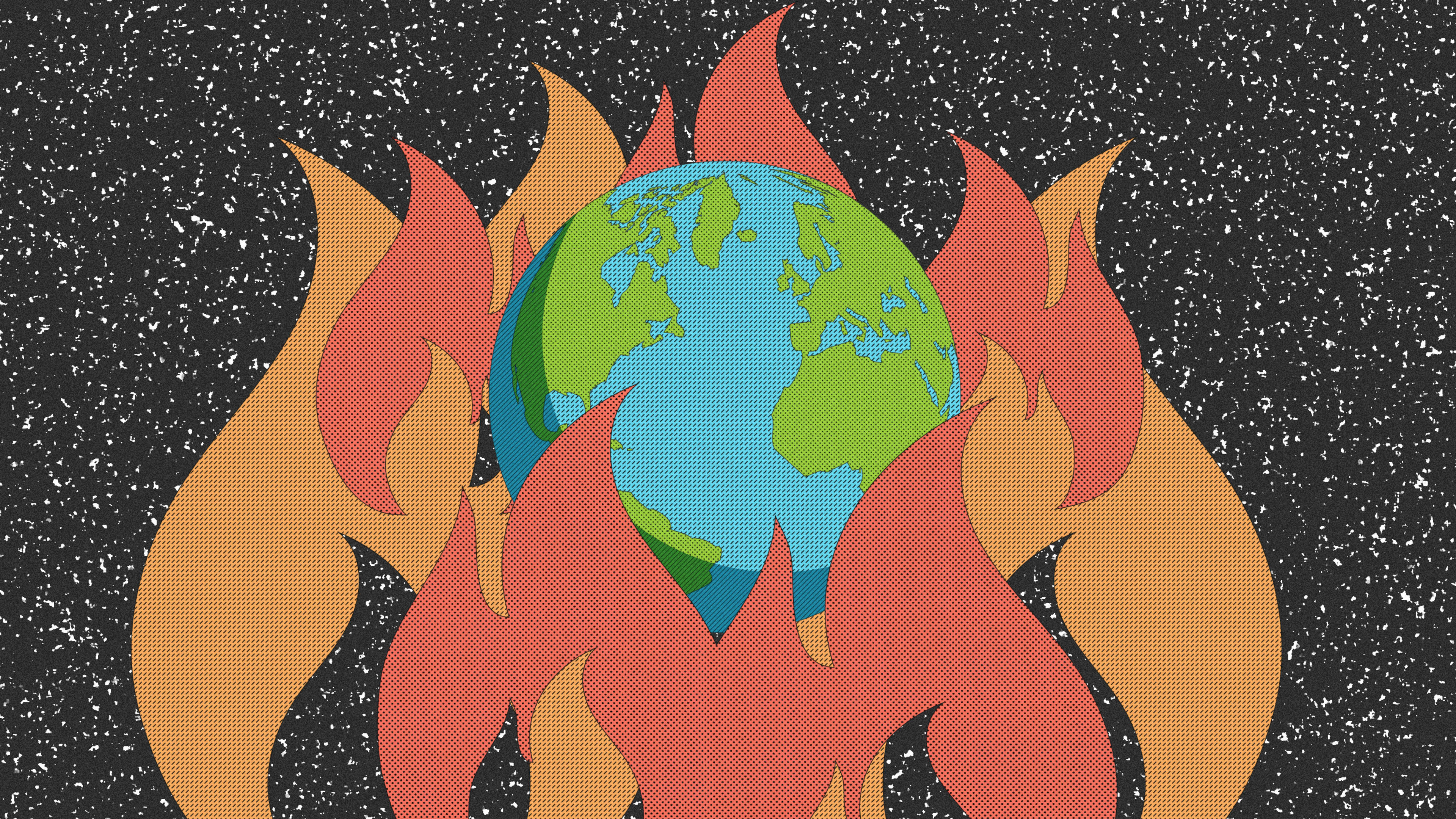A few days ago someone posted a question on Reddit: How do we save this fucking planet? As the Amazon burns, and CO2 levels in the atmosphere hit record highs, and climate change threatens the world’s food supply, and one million species are at risk of extinction, among many other problems—it’s an obvious question to ask. More than 16,000 people commented, offering ideas from “end capitalism” to “eliminate single-use packaging.” We reached out to the nonprofit World Resources Institute to get an expert take on the question.
There are two key systems that need to fundamentally change, says Craig Hanson, vice president for food, forest, water, and the ocean at the World Resources Institute. “If we’re going to actually succeed in achieving sustainable development right now, essentially, it comes down to creating a sustainable energy system and a stable food system,” he says. Other changes, he argues, are just footnotes. How we grow food and how we power our lives, from electricity to cars, are the things that are most critical to get right in order to have a livable planet. It’s just one perspective, but it aligns, for the most part, with the top solutions listed in Project Drawdown, a detailed list of the most effective ways to fight climate change.

Transform the food system
Producing food already uses nearly half of the world’s vegetated land, and agriculture and related changes in land use are responsible for around a quarter of the world’s greenhouse gas emissions. In the Amazon, farms in the supply chain of major food companies are one reason the rainforest is disappearing. The food system uses more water than any other industry, and much of that water is wasted. As the global population grows, adding another 2 billion people by midcentury, the pressure on the planet will only increase. In a recent massive report produced with the World Bank and UN, the nonprofit outlined 22 things that need to change to be able to feed the world sustainably.
Three things that are particularly important, says Hanson. One is to make the food system more efficient, cutting back on the huge amount of food that is wasted. The type of food that we eat also needs to change, since producing meat, in particular, has an enormous impact on the environment. That doesn’t mean that everyone needs to become a vegetarian. But if Americans ate around 40% less beef—or roughly a burger and a half each week instead of more—it would make the food system significantly more sustainable. “We’re talking about those who overconsume scaling back,” he says. A third key is boosting yields on existing farmland, helping farmers avoid tearing down more forests.
For each of these areas, there are actions that governments, businesses, and individuals can take. To reduce meat consumption, for example, governments might put a tax on meat, cut subsidies for meat production, or serve less meat themselves, as in public school lunches. Restaurants might put more plant-based meat on the menu, food manufacturers might invest in new products (major meat companies are already developing new plant-based meat themselves, and offering “blended” products that mix meat with plants), and offices might serve less meat in cafeterias. Individuals—while pushing for governments and businesses to make these larger changes—could shift to a flexitarian diet.

Reinvent the energy grid
The energy system is the biggest driver of greenhouse gas emissions and a major source of air pollution. Some of that change is beginning. The U.S., for example, now produces five times more renewable electricity than it did a decade ago; in China, from 2008 to 2018, wind power grew 22 times and solar power grew 700 times. As of March, around 60% of new car sales in Norway were electric. A handful of cities, like Copenhagen, have managed to transition from car-centric to places where a majority of local commuters bike or walk. Hanson suggests that the four key parts of the energy system are especially critical to change: more energy efficiency, a dramatic shift to more renewable electricity, electrification of the economy so that everything—from cars to factories—can run on that renewable electricity, and affordable energy access for everyone.
There are clear barriers to making those changes from companies with a vested interest in the status quo, and, as Hanson puts it, “misaligned economic and financial incentives perpetuated by a lack of political will to put in place the needed policy changes.” But the changes are possible, and the energy policy firm Energy Innovation has laid out the details of how policy can drive transformation in how we use energy. The technology we need already exists, and we just need to implement it. “It’s all solvable if you do the right thing, and do it promptly,” Hal Harvey, CEO of Energy Innovation, told Fast Company.
“I am optimistic,” says Hanson. “Movement on these issues has progressed a lot since the world’s first Earth Day . . . I think it is feasible. The issue isn’t technology or money. The world has great technologies now and technological potential. Likewise, there is a lot of financial capital, public and private, floating around. It is a political will and consumer choice/demand issue. Humanity has a knack for solving the most vexing challenges just in time. But we shouldn’t take it for granted.”
Recognize your brand’s excellence by applying to this year’s Brands That Matter Awards before the early-rate deadline, May 3.
